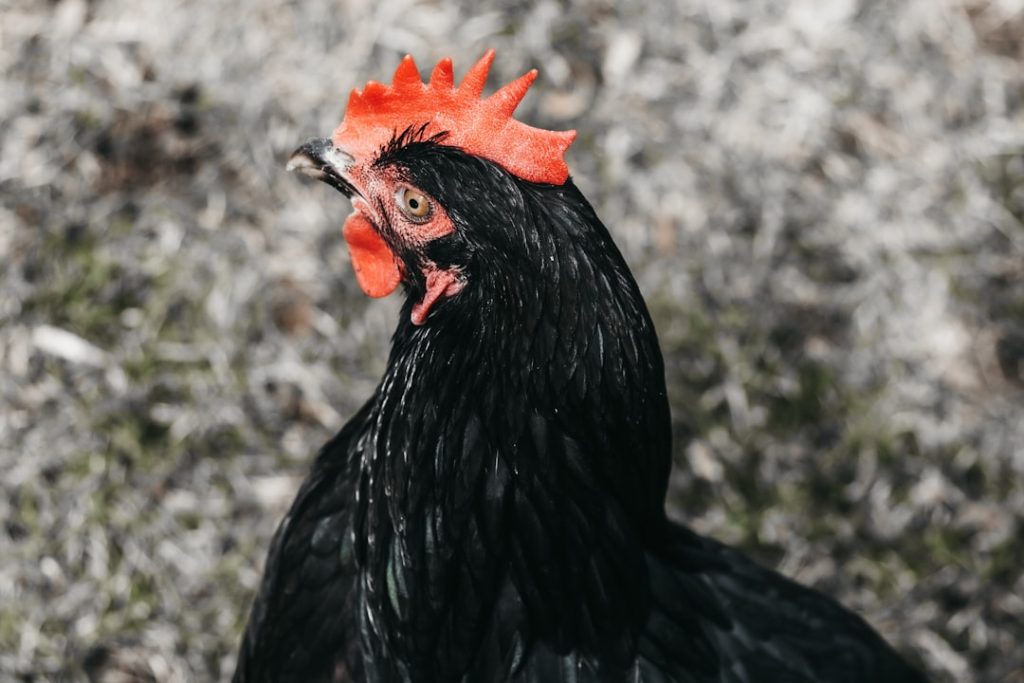Chickens are social creatures that thrive in flocks. They possess innate behaviors such as foraging, ground scratching, and dust bathing. Understanding these behaviors is essential for creating an optimal environment for their well-being.
Chickens exhibit territorial tendencies and may display aggression towards one another if they feel threatened or lack sufficient space to establish individual territories. Providing adequate space for each chicken to establish its position in the pecking order and avoiding overcrowding in coops and runs is crucial. As diurnal animals, chickens are most active during daylight hours and require access to natural light and fresh air.
A stimulating environment that allows for exploration and natural behaviors is vital for their overall health and happiness. Chickens have an instinctive need to roost at night, making the provision of roosting bars in their coop essential for comfort and safety. By comprehending and accommodating these natural behaviors, chicken keepers can create an environment that promotes the health and contentment of their flock.
Offering opportunities for foraging, scratching, dust bathing, and roosting ensures that chickens can engage in their instinctive behaviors, leading to improved well-being.
Table of Contents
Key Takeaways
- Chickens are social animals and exhibit natural behaviors such as scratching, pecking, and dust bathing.
- Rotational grazing helps prevent overgrazing and allows grass to recover, while also reducing parasite load and providing fresh forage for chickens.
- Providing alternative areas for dust bathing, such as sand or loose soil, helps chickens maintain good hygiene and health.
- Chicken tractors or mobile coops can be used to move chickens to different areas, allowing for natural fertilization and pest control.
- Installing fencing or barriers helps protect chickens from predators and keeps them within designated areas for grazing and foraging.
- Chicken-friendly landscaping includes planting shrubs and trees for shade, as well as creating natural barriers to provide protection and enrichment for chickens.
- Regular maintenance and monitoring of the grass ensures that it remains healthy and provides adequate forage for the chickens.
Implementing rotational grazing
Implementing Rotational Grazing
Rotational grazing can be implemented by dividing the grazing area into smaller paddocks and moving the chickens to a new paddock every few days. This allows the vegetation in each paddock to recover while providing the chickens with fresh forage. It is important to monitor the condition of the pasture and adjust the rotation schedule as needed to ensure that the vegetation has enough time to recover before the chickens return.
Benefits for Soil Health and Fertility
In addition to providing fresh forage for the chickens, rotational grazing can also improve soil health and fertility. The chickens’ droppings will fertilize the pasture, leading to healthier grass and soil. This practice can also help control weeds and reduce the need for chemical fertilizers.
Creating a Sustainable Environment
By implementing rotational grazing, you can create a more sustainable and productive environment for your chickens while improving the overall health of your pasture.
Providing alternative areas for dust bathing

Dust bathing is a natural behavior for chickens that helps them maintain healthy feathers and skin. It also helps them control parasites such as mites and lice. Providing alternative areas for dust bathing is important for the well-being of your chickens.
You can create a dust bathing area by mixing sand, soil, and wood ash in a designated spot in the coop or run. This will provide your chickens with a suitable area to engage in this natural behavior. It is important to keep the dust bathing area dry and free from moisture to prevent it from becoming a breeding ground for parasites.
In addition to providing a designated dust bathing area, you can also provide access to natural areas where chickens can dust bathe. Allowing your chickens access to areas with loose soil or sand will give them the opportunity to engage in this natural behavior. Providing alternative areas for dust bathing will help keep your chickens healthy and comfortable while allowing them to engage in their natural behaviors.
Using chicken tractors or mobile coops
Chicken tractors or mobile coops are portable enclosures that can be moved around your property to provide your chickens with access to fresh forage while protecting them from predators. These structures are typically lightweight and easy to move, making them an ideal option for rotational grazing. Chicken tractors can be used to confine your chickens to a specific area of your property, allowing them access to fresh grass and insects while preventing overgrazing.
By moving the chicken tractor regularly, you can ensure that your chickens have access to fresh forage while allowing the vegetation in other areas to recover. In addition to providing access to fresh forage, chicken tractors also provide protection from predators. The enclosed structure of the chicken tractor helps keep your chickens safe from predators such as foxes, raccoons, and birds of prey.
This can give you peace of mind knowing that your chickens are safe while still allowing them access to natural foraging opportunities.
Installing fencing or barriers
Installing fencing or barriers is essential for creating a safe and secure environment for your chickens. Fencing can help keep predators out while preventing your chickens from wandering into areas where they may be at risk. It is important to choose fencing that is sturdy and secure to prevent predators from gaining access to your chickens.
Additionally, installing barriers such as chicken wire or hardware cloth around the coop and run can help prevent predators from digging under or climbing over the fence. Fencing can also be used to create separate areas for rotational grazing or to confine your chickens to specific areas of your property. By dividing the grazing area into smaller paddocks with fencing, you can implement rotational grazing while keeping your chickens safe from predators.
Fencing can also be used to create a secure outdoor run where your chickens can safely exercise and forage without the risk of predation.
Utilizing chicken-friendly landscaping

Providing Opportunities for Natural Behaviors
Creating a chicken-friendly landscape involves designing your property in a way that provides opportunities for natural behaviors such as foraging, scratching, and dust bathing. You can incorporate features such as shrubs, trees, and ground cover that provide shade, shelter, and natural forage for your chickens.
Enhancing the Environment with Diverse Plantings
Planting fruit trees or berry bushes can provide additional food sources for your chickens while creating a more diverse and stimulating environment for them. This not only benefits your chickens but also adds beauty and variety to your landscape.
Creating a More Aesthetically Pleasing Environment
Incorporating chicken-friendly landscaping can also help create a more aesthetically pleasing environment for both you and your chickens. By creating a diverse landscape with different textures and heights, you can create opportunities for exploration and enrichment for your chickens. Providing areas with dense vegetation or shrubs can also create hiding spots and shelter for your chickens, helping them feel safe and secure.
Regular maintenance and monitoring of the grass
Regular maintenance and monitoring of the grass is essential for creating a healthy environment for your chickens. It is important to mow the grass regularly to prevent it from becoming overgrown and unmanageable. Keeping the grass at a suitable height will make it easier for your chickens to forage and move around while reducing the risk of predators hiding in tall grass.
Additionally, regular mowing can help promote new growth and prevent the build-up of thatch, leading to healthier grass. In addition to regular mowing, it is important to monitor the condition of the grass and soil in your pasture. Keeping an eye on the health of the grass will allow you to make adjustments to your rotational grazing schedule as needed.
If you notice areas of overgrazing or compaction, you may need to adjust the rotation schedule or provide additional rest periods for those areas. Monitoring the grass will also allow you to identify any potential issues such as weed infestations or soil erosion, allowing you to take proactive measures to address these issues before they become more significant problems. In conclusion, understanding the behavior of chickens is crucial for creating a suitable environment for them to thrive.
Implementing rotational grazing, providing alternative areas for dust bathing, using chicken tractors or mobile coops, installing fencing or barriers, utilizing chicken-friendly landscaping, and regular maintenance and monitoring of the grass are all important practices for creating a healthy and sustainable environment for your chickens. By incorporating these practices into your management strategy, you can create an environment that promotes the natural behaviors of your chickens while ensuring their safety and well-being.
If you’re looking for tips on how to keep chickens from destroying your grass, you might also be interested in learning how to insulate a chicken coop to keep your feathered friends comfortable in all seasons. Check out this helpful article on how to insulate a chicken coop for some great advice on creating a cozy and functional living space for your chickens.
FAQs
What are some ways to keep chickens from destroying grass?
Some ways to keep chickens from destroying grass include providing them with a designated area for foraging, using chicken tractors to rotate their grazing areas, and providing them with plenty of space and enrichment to keep them from becoming bored and destructive.
How can I create a designated area for my chickens to forage?
You can create a designated foraging area for your chickens by using fencing or netting to section off a portion of your yard or property. This area can be rotated periodically to allow the grass to recover.
What are chicken tractors and how can they help prevent grass destruction?
Chicken tractors are portable coops that can be moved around your property to allow chickens to graze in different areas. By rotating their grazing areas, you can prevent them from overgrazing and destroying the grass.
What are some ways to provide enrichment for chickens to prevent grass destruction?
Providing chickens with plenty of space to roam, dust bathing areas, and opportunities to forage for insects and plants can help prevent them from becoming bored and destructive. Additionally, providing them with toys and objects to peck at can also keep them entertained and prevent them from focusing on destroying the grass.
Meet Walter, the feathered-friend fanatic of Florida! Nestled in the sunshine state, Walter struts through life with his feathered companions, clucking his way to happiness. With a coop that’s fancier than a five-star hotel, he’s the Don Juan of the chicken world. When he’s not teaching his hens to do the cha-cha, you’ll find him in a heated debate with his prized rooster, Sir Clucks-a-Lot. Walter’s poultry passion is no yolk; he’s the sunny-side-up guy you never knew you needed in your flock of friends!







